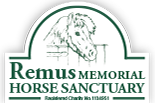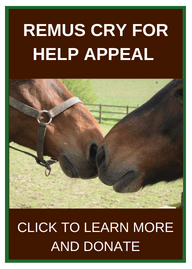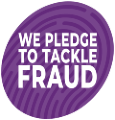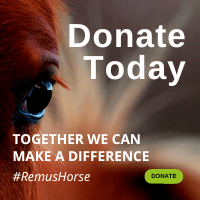Our plans for 2014
2014 is the Chinese year of the Horse and we are determined to make this a year to remember by focusing on four main areas of welfare and education. We want to focus on the horses in Thurrock, the horses in Harlow, continue to highlight the plight of tethered horses and to organise another elderly horse seminar to provide specialist expert advice on how to look after and care for the older horse and how to make sure that they enjoy there twilight years.
Last year we had many high and low points but we have been able to help many animals with Davey the Donkey and Pippa Horse being just a few. Davey the donkey was able to undergo lifesaving surgery and Pippa horse was able to go to the Animal Health Trust for life saving cataract surgery. These animals may not have had the chance to live without our help
We have started the year off by rescuing a blind pony whom we who we have named Holly. Holly, unfortunately, is blind in both eyes and faced a certain death. Luckily we were able to step in and remove her from danger and now we can start to give her the life that she deserves. Holly arrived at Remus on the 13th January and has settled in extremely well! She is undergoing tests to establish her health issues and what can be done to help her and she is received constant care and nursing as we try to bring her back to full health
Tethering, although not illegal is in our opinion, an inappropriate way to keep a horse – denying them the 5 basic principles of care. The horses that are tethered along the roadside in Harlow are always a concern, one horse was killed last year and one almost caused an accident when it was running loose on the road .We want to make sure that this does not happen to any more horses, ever.
In 2014 we want to strive to make massive in-roads into highlighting the plight of horses and the extent of the horse welfare crisis in the UK at present.
As we move into the Summer months we hope that you will be able to attend our Open days and support our work and help us achieve these goals. Why not join the Sanctuary or make a donation to support our much needed work to help these gentle and noble animals?
Our campaign for horses on mardyke plains
Firstly, we hope you had a restful Christmas and New Year and spent some quality time with loved ones. This is, after all, what Christmas is about!
During the Christmas period, we have spent our time working to help remove the horses from the flooded Mardyke plains and take them to a safer site, better suited to their needs. There were more than 20 horses left grazing on land hit by the recent flooding in the UK, they were seen wading through the floodwaters!
The dangers associated with horses and flooding are extremely serious. Mud poses serious threats for horses. If they are tethered, trapped or immobile they can fracture a limb or injure themselves whilst struggling to move in the deep mud. Indeed they can get stuck in the mud and need rescuing by fire rescue crews. They can develop rain scald, mud fever, foot problems, pneumonia, wounds and infections and waterborne diseases.
The Mardyke plains are totally unsuitable living conditions for horses in flood conditions. The situation was getting more serious and was in desperate need of a resolve as the horses were at a very real risk of drowning if the water levels continued to rise
The local Authority who owned the land refused to take action to help these horses so we launched a Campaign on facebook and in 2 days our petition had 8,000 signatures – testimony to the amount of people who were concerned for the welfare of these horses. Horses have died on these plains in the past and others have had to be dragged out of the mud, which could have been avoided.
We were delighted when the Council did a massive u-turn and issued a statement saying that the horses would be moved and would never be allowed to graze the land again between November and March. This is a huge success and will save those horses from possible death.
We would like to say a BIG thank you to all of those who have supported this cause!
Remember Remus
With Remembrance Day just gone, Remus thought it would be a good idea to reflect on how the horses made an extremely positive impact on The Great War.
World War one broke out in Western Europe in August 1914, with devastating effects. The trench warfare was a horror nobody could have predicted. Soldiers fighting in the trenches became ill very quickly with all sorts of awful diseases, such as trench foot, hyperthermia and gangrene. Due to being so low to the ground in a plethora of diabolical conditions, those battling in the trenches didn’t have much chance of survival.
Those in the cavalry regiments, however, prevailed over the rest. Those regiments in the British Army would have been seen as the regiments of seniority, with most of the senior army positions held by cavalry officers. Horses were considered to be essential in the offence elements of the military force early during World War One, and some soldiers were told that the loss of a horse was greater than the loss of a troop in battle. By the end of the war, the horses had contributed greatly to Germany’s defeat.
Horses were used mainly for transporting goods during the Great War, as they proved a much more reliable source of logistical support, as opposed to vehicles, for travelling through mud, sludge and rough terrain. They were used for reconnaissance and messaging as well as pulling artillery and supply weapons. They also greatly contributed to the transporting of sick and injured soldiers to hospital, and were vital in transporting medicines and goods which would be needed to treat soldiers immediately. Having horses also greatly improved the morale of the troops during the war, as they usually held officers who were able to raise morale.
In war literature, horses appear frequently and one of the greatest books of all time, ‘War Horse’ is now known and loved all over the world, and appears in a variety of formats. Equines made such a huge impact on the war, and without them Germany would not have been defeated. They gave the soldiers hope, and were essential in the wellbeing of many of the troops.
This Country has been built on the backs of our equine friends and we owe them a great deal of With Remembrance Day coming up, Remus thought it would be a good idea to reflect on how the horses made an extremely positive impact on The Great War. Help support those horses who have not had the best start in life. Supporting Remus will help us to keep doing the jobs we are doing to give a safe home for horses.
Keeping your horse safe during bonfire night
Bonfire night is fast approaching and firework displays are beginning. It can be a distressing time for horses and a stressful time for owners if you don’t know how best to keep your animals safe; preparation is key.
Keeping the horse to their normal routine, with their usual friends is important. By ensuring they are in the same routine, you will be minimising the amount of distressing situations for them. If your horse is stabled overnight usually, it is best to keep it this way. Some horses will react better if they are kept in the fields – it’s entirely down to the horses preferences, and you’ll know best how to cope with this. Some owners choose to stable their horses, but if this isn’t something your horse is used to, they will probably react to this in a negative way. Most horses cope better left out in the field, as they do not feel trapped and have space to run. It is a good idea to ensure there aren’t any objects in the field or stables which could injure your horse if it becomes frightened. Check to make sure all fencing is secure. Make sure the stables are safe and warm, and that they have food and water available to them, to keep the horses as comfortable as possible during this difficult time.
If you’re unsure of how your horse will react to the noise, stay with them, as your presence should calm them. As previously mentioned, keeping them as calm as possible is of utmost importance. Your horse may seem relaxed, but keep checking them to be sure. Be sure not to ride your horse under any circumstances when you think fireworks may be set off.
It’s recommended that you do your research, to find out when fireworks will be set off. Make sure you’re near the fields to check how your horses have reacted. This will give you an idea of how to react in the future. If your horse does get very distressed, stay with them until after the display has finished, to ensure they stay as calm as possible and don’t injure themselves.
Exercising your horse in the winter
As horrible as it is to admit, winter is approaching faster than we’d like. A horse should be exercised every day, and winter is no exception to this rule. How, though, can you ensure exercising your horse in the winter is a safe and happy experience for both you and your horse.
Firstly, don’t forget to wrap you and your horse up warm! If it’s a cold day, but the sun is shining, there’s a chance you’ll get warm. You’ll need to be able to remove layers of clothing easily. Attach a small bag to the saddle to store your clothing until you need them. Make sure it doesn’t get so heavy as to weigh your horse down.
Horses are in their natural habitat outside, so during the winter, they do tend to grow a thicker coat. This extra coating does keep horses warm outside, but it also means they are more likely to sweat when exercising your horse. Many horse owners clip their horses for winter months to avoid this.
Horses that spend a lot of time exercising or being outdoors may require extra attention to their hoofs. There can easily be a build-up of snow and ice in the horse’s hooves, causing them to walk unevenly or even slip and fall. If you’ve decided against exercising your horse, you might choose for your horse to go barefoot.
The cold weather can mean your horse riding tack, saddles and other riding equipment can be ruined. It’s important to check all of your equipment before exercising your horse in the winter. The winter moisture, as well as freezing and thawing again and again can harm the leather and metal components of your tack. Clean and condition your equipment as regularly as you can. If your tack is well maintained, it is less likely to become ruined or broken.
Last but not last, remember that before exercising your horse in the winter, you should check their physical condition. There’s no point working your horse if they’re not physically able to carry out the same tasks they would in warmer months, as you risk harming the equine. A long walk or jog should do them well if they are physically unable to do anymore. You can also allow your horse to roam free in the fields to exercise them as well this winter.
What a few months it has been!
Davey donkey came in earlier this year with a huge penile tumour and we were faced with the reality of putting him to sleep or sending him for surgery. The surgery required the complete removal of the penile area and was incredibly invasive. It was a very difficult decision to decide what to do for the best for him, as donkeys are also a higher anaesthetic risk but he was only 13yrs old and had his life ahead of him. He had spent much of his life cooped up on his own and he could not believe his luck when he had the freedom of his own paddock and 8 other donkey friends. Without question we saw Davey smile!!! He so loved his new life.
Eventually the decision was taken to give him the chance of life, It was absolutely the right decision, He went into the Vets on the Tuesday, had the operation on the Wednesday and was back grazing in his paddock on Thursday. It was such a relief and now he has his life ahead of him.
Whilst all this was going Pippa horse who had cataracts suddenly lost all sight. One evening she got spooked by a thunderstorm and ran into the fencing causing herself immense injuries and one wound which required 150 stitches.
We could not get her into a stable as she could not cope with the change from light to dark so with the Vet having sedated her we had to set up intense lights in the stable so she could see, dark and light to walk in. Then came the long task of waiting for her to heal.
Eventually the wounds healed sufficiently and she calmed down enough to be considered for cataract surgery at the Animal Health Trust in Newmarket. The biggest worry with this other than the cost was how we were going to get a highly strung horse who could not see into a horse box. Again we were left with no choice as it was a case of surgery or having to put her to sleep and yet she was only 17years old.
The decision was made and again we had the struggle to find the money to pay for her operation and our thanks go to you, our loyal supporters for your kindness and generosity and your caring spirit for helping us raise sufficient funds to be able to send yet another Remus animal off for life saving surgery.
Loading Pippa was far from easy but eventually she arrived safely at the Animal health Trust and the operation was performed the next day. There were complications and at one point it seemed we were at great risk of losing her but being the fighter she is she pulled through and bit by bit her eye improved and she began to see. She now has full sight in one eye and is home safe.
Two days before she arrived home one of our staff noticed a lump on Hovis donkey and it seems now that he too has a penile tumour which, because it has been caught early, will require him to go to surgery for laser treatment that will remove it for good, It has just been months of up and down and that’s without all the usual day to day pressures including the flooding! I recall one day a few months ago stood up to my ankles in water sweeping the water away to try to stop it swamping my office.
On top of all this the financial situation is far from good and with the winter ahead I have to admit I am very concerned as to how we are going to get through the winter. On top of trying to keep the animals here well and fed and cared for we will come under extreme pressure to help many horses over the winter months who are left without food or proper care.
Can I appeal to you to help in one of two ways: – Can you help by making a donation to the Sanctuary to help us to get through the winter months or can you think of any fundraising ideas, can you organise an event at work or at a school? A coffee morning amongst your friends? If you have any ideas at all then please do get in touch.
On behalf of all the animals at Remus I thank you from the bottom of my heart for your kindness and your support of them and the work that we do for them
National World Animal Day
The fourth of October marks the annual National World Animal Day. Here at Remus Animal Sanctuary, we’re always dedicated to giving the animals the respect they deserve all year round.
World Animal Day was created in 1931 as a way of heightening the awareness of the predicament of endangered species. It has since become a day in which we remember and pay tribute to animals and their carers – a day to appreciate what animals do for us, and what others do for them. The day has become more successful year after year, and is set to continue. The World Animal Day initiative is the perfect way to unite the animal welfare movement and raise more and more awareness about animals, and encourage the respect they deserve.
As humans, we should be celebrating animal life, no matter how big or small they are. It is important to recognise and appreciate the way animals enrich our lives and celebrate our relationship, and consider what animals do for us. The most important point, however, would be to acknowledge the different roles our animals play in our lives. They are companions; they support and help us through daily difficulties.
Animals should be treated with as much respect as humans give each other. Here at the Sanctuary, we see so many animals that have been abused and malnourished and it becomes difficult to understand why. World Animal Day raises awareness of situations like this, and allows more people to get involved, and help to change the way the world is heading with animals.
Often, we take pets for granted; we’re so used to having them around they become part of the family. We don’t, however, give consideration to what animals do for us. Many people say that without their cat, dog or horse, for example, their household wouldn’t be the same. World Animal Day reinforces the values between humans and animals, and creates more awareness and appreciation around them.
Feeding your horse
Our Ingatestone, Essex sanctuary houses a lot of horses; so many we could easily lose count! From our experience we find it hard to fathom why people don’t try to feed their animals a healthy balanced diet when they are just like us human beings – They need five a day too! If we eat too much of one food group, we stand the chance of putting on weight and without exercising we may become overweight. The same goes for animals. If you do not exercise your horse on a daily basis, not only will it put on weight, it will likely become agitated with the natural build-up of energy and may even cause difficulties when trying to exercise in the future.
The nutrients needed to provide your horse with a balanced diet can be broken down into seven categories: proteins, carbohydrates, water, fats, oils, vitamins and minerals. Too much of any one group will lead to an unbalanced diet.
By feeding your horse things that he or she can chew, they will break down their food, which makes it easier to digest. Chewing also helps produce salvia which helps to further break down the food. Make sure you take care of your horses teeth to allow them to chew effectively.
As your horse’s stomach is roughly only the size of a football, try not to overfeed them. They are grazing animals that feed little and often, so try to ensure your horse has plenty of access to grass and forage, key to keeping your horses stomach full and active.
When I talk about forage, I generally mean hay. By supplying your horse with hay you will maintain the natural functions. Without this your horse may have complications such as stomach ulcers and problems with their teeth.
With the upcoming cold weather, you may be wondering why you are being advised to provide more hay during the icy winter months. This is because the digestion of hay produces heat which funnily enough acts as your horses central heating system, so by eating more hay, will increase the temperature of your horse.
These are just a few simple things to consider when you are looking what to feed your horse. We would always recommend talking to your vet if you have any urgent advice!
Please help this beautiful blind mare to see again and so save her life
Pippa
Pippa is a 19 year old mare that lives here at the Sanctuary. She has been with us for quite a few years now after suffering terrible mistreatment by her previous owners. We have been working with Pippa to build her back to health and encourage a confidence in her spirit that she had lost.
In recent months her health has deteriorated and she is now suffering from severe cataracts which need surgery. This surgery to help Pippa see again will cost £4,000 as an expert ophthalmologist has assessed her as having absolutely no sight – the only hope for her is to have at least one cataract removed.
Pippa simply cannot cope without her vision. Her eyesight has been failing over a period of time and it is only in the past couple of months that we have really observed it affecting her everyday life. During a recent storm she became so spooked and terrified that she ran into a fence, demolishing it and causing herself a terrible injury in the process. Poor Pippa needed over 150 stitches to the wound.
It was following this incident that we spoke to a vet about Pippa and what we could do to ease her discomfort other than putting her to sleep, which seemed like the kindest option. We cannot stress enough – Pippa cannot cope without her sight. The vet was fantastic and quickly got back to us with a diagnosis… Our Pippa has no sight but is a candidate for cataract surgery.
A cataract is a clouding of the lens inside the eye; it is the most common cause of blindness and is conventionally treated with surgery. Visual loss occurs due to the clouding of the lens reducing the amount of light to focus on the retina at the back of the eye.
We desperately want to give Pippa another chance at life.
Can you help us to help Pippa? Can you help us to restore sight to this beautiful horse? If we cannot raise the money we will need to put her to sleep; any size donation can help and there are lots of ways in which you can donate. We have set up a just giving page just for Pippa, Just text RMHS11 with the amount you want to donate (e.g £2 or £10) to 70070 to help us give this magnificent mare another chance.
Countess of Wessex visits Remus
We were delighted on 10th July to receive a visit from the Countess of Wessex. It was without question a day to remember.
With staff, volunteers and members who had all made a big difference to the Sanctuary over the years there were about 100 of us on site, The Countess arrived just after 11am and personally met everyone on site also many of the horses, ponies and donkeys. Also in attendance was Lord Petre, the Lord Lieutenant of Essex.
Among the many animals that the Countess met were Guinness, our Shire and Spencer the donkey. When Rosie, Shetland pony took particular interest in the Countess’s bag, the only way to convince Rosie that it was not concealing a stash of carrots was to open her bag and show her that it absolutely did not have carrots in it.
The Countess also met Mischief and Pippa, Pippa, a lovely Thoroughbred mare is nearly completely blind and Mischief acts as her eyes.
Whilst standing in the donkey paddock Spencer donkey was concerned he might get overlooked, so he strolled right up behind the Countess to ensure that he was introduced!
The Countess was particularly interested in the holistic work that we do at the Sanctuary and met Dena Schwartz, well know zoopharmacognocist who explained about self medication through self selective herb feeding and Caroline Thomas discussed reiki with the Countess.
The Countess then met some of our valued members and unveiled a plaque commemorating her visit and signed a Visitors book before taking her leave.
The whole event was catered for by Ab Fab Catering, who did an absolutely superb job.
The day was absolutely perfect and just could not have gone any better. The Countess was genuinely interested in the animals and how they came to be at Remus.
A day in the history of Remus that will always be warmly remembered.










